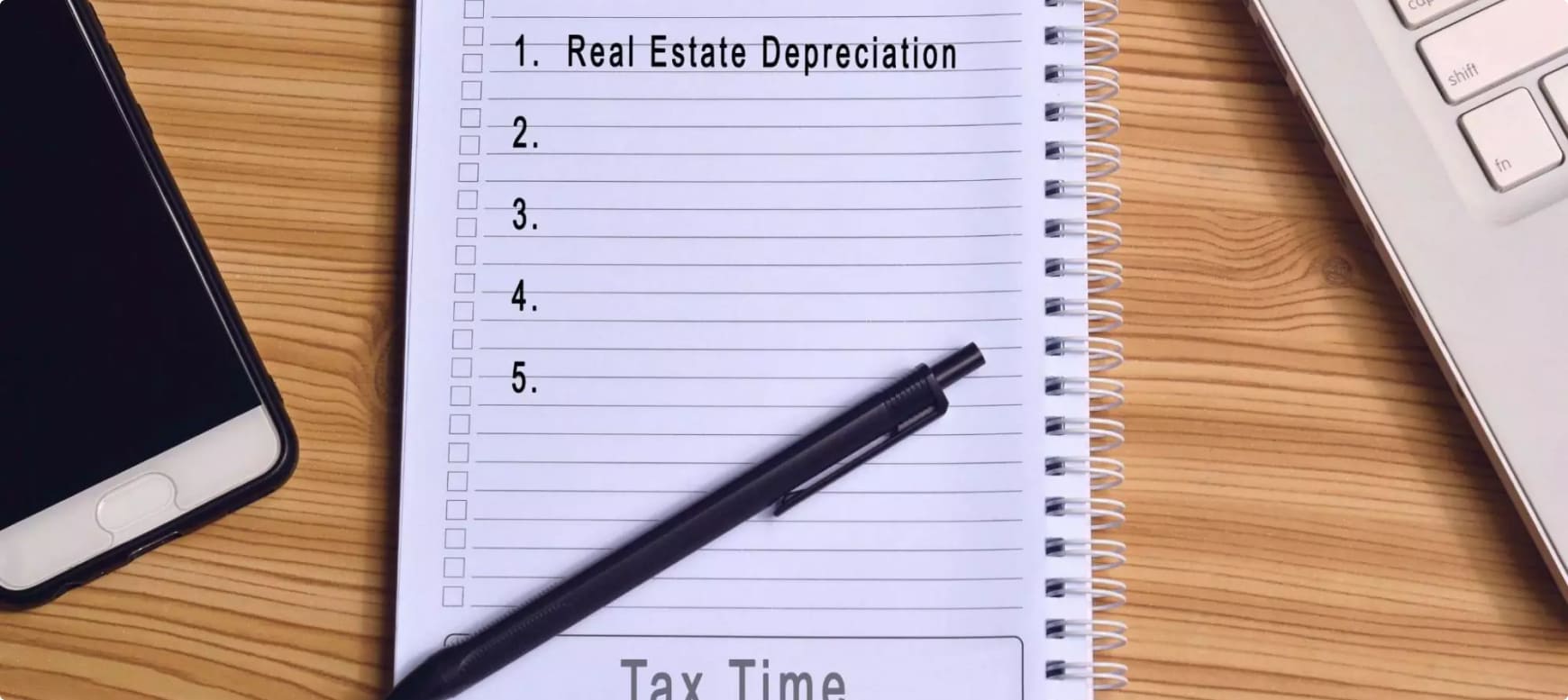3 min read
March 8, 2023

Depreciation can dramatically reduce taxable income on rental profits.
The cost of assets that have a useful life of one year or more and can be deducted over a longer period of time. This is known as depreciation.
If you buy a property with the intention of renting it, you can depreciate the cost of acquiring the property over a period of time.
The IRS provides guidelines when it comes to the depreciation of real estate. Most real estate investors buy residential rental properties. The IRS says you can treat these as having a useful life of 27.5 years. In other words, you can divide your cost basis in the property by 27.5 to determine your annual depreciation “expense.”
Another important thing to note is that only the value of the building itself can be depreciated. Not the land that it’s built on. An easy way to determine the value of the land that you need to subtract is by using the tax assessment value.
You can continue to depreciate a rental property over time until you sell the property or you’ve depreciated your entire cost basis.
You might think your cost basis is the amount of money you paid for a property. But it’s not always that simple.
The cost basis for rental real estate is your acquisition cost (including any mortgage debt you obtained) minus the value of the land it’s built on. If you paid $200,000 for a duplex and the land is appraised for $50,000, your basic cost basis is $150,000.
However, there are some other costs that must be included in your cost basis. These include the following (but there are other applicable costs, as well):
Your cost basis can also be adjusted over time, this is your “adjusted basis.” This includes the cost of improvements or additions you make to the property. It also includes expenses related to casualty damage or the cost of running utilities to the property.
In order to depreciate rental property, you have to meet the following criteria:
Also, to depreciate a rental property, you should plan to hold it for more than a year. If you plan to buy a house, fix it up, and sell it a few months later (a “fix-and-flip”), you generally can’t depreciate the property during your holding period.
If you own a rental property for an entire calendar year, calculating depreciation is straightforward. For residential properties, take your cost basis (or adjusted cost basis, if applicable) and divide it by 27.5.
It’s more complicated when you own the property for only part of a calendar year. This generally occurs in the years when you buy and sell a property. In these cases, you can prorate the depreciation based on how many months of the year you used the property to generate rental income.
Depreciation is one of the biggest tax advantages for rental property owners because it provides an annual tax deduction that isn’t really an expense. Let’s say you have a rental property that produces $6,000 in annual income after expenses. A $4,000 depreciation expense will reduce your property’s taxable income to just $2,000.
For this reason, rental income generally has a lower effective tax rate than virtually any other type of income. In fact, it isn’t uncommon for rental properties to show a loss for tax purposes, even though they’re quite profitable.
3 min read
March 8, 2023
3 min read
February 1, 2023
2 min read
January 22, 2020
Tell us about your property in 5-10 minutes.
Oops, looks like an email. Please write the address of the house you want to sale.
Enter your email address and we will send you a link to change your password.